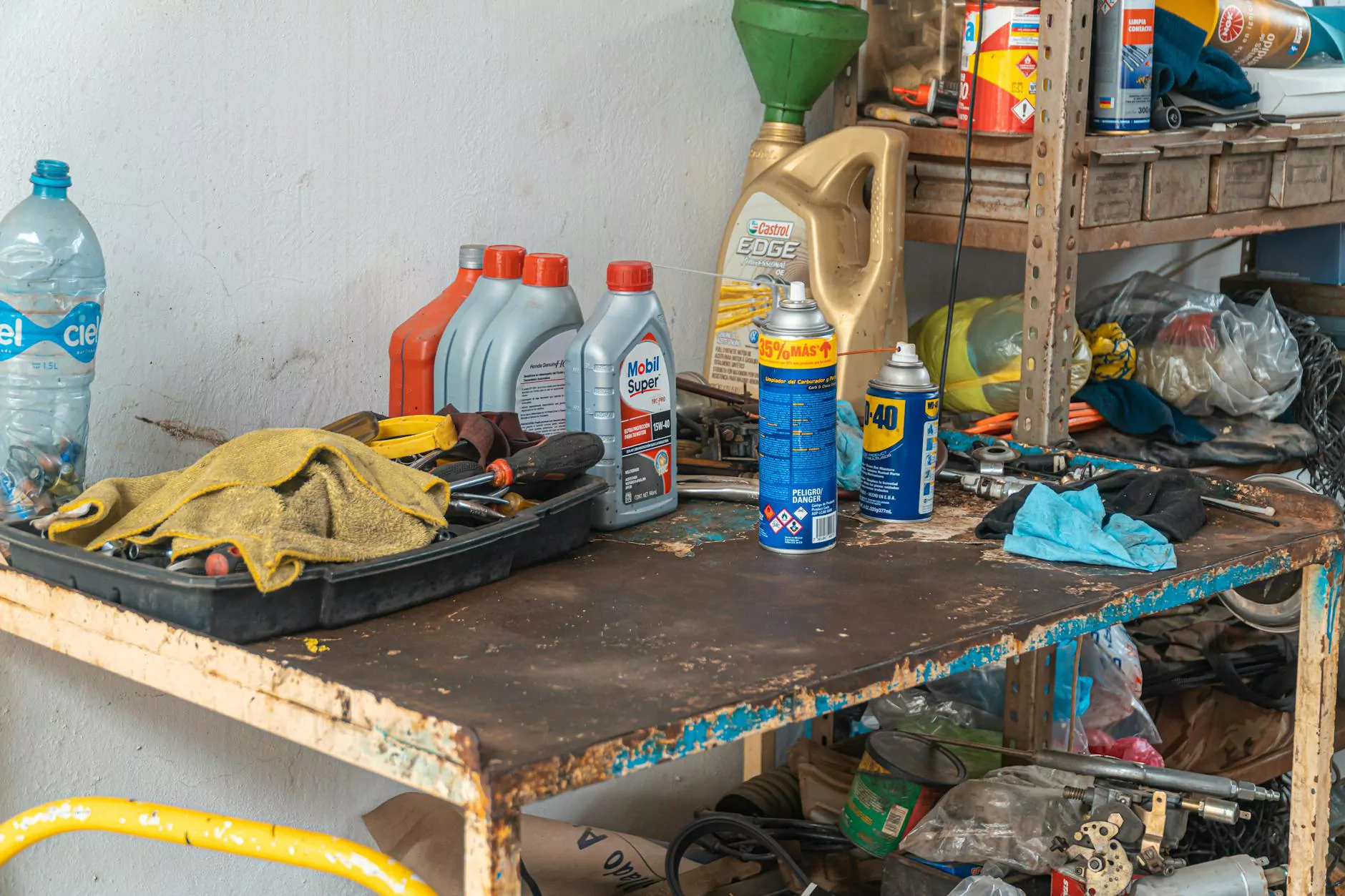Understanding Oil Seal Parts: The Heartbeat of Diesel Engine Performance

In the world of diesel engines, the importance of every component cannot be overstated. Among these components, oil seal parts stand out as critical players in ensuring optimal operation. This article delves deep into the significance of oil seal parts, their varieties, applications, and how they contribute to the efficiency and longevity of diesel engines.
The Role of Oil Seal Parts in Diesel Engines
Oil seal parts serve as barriers that prevent leaks of various fluids within diesel engines. They are essential for maintaining pressure and protecting sensitive engine components from contaminants. Their primary functions include:
- Preventing Fluid Leaks: The primary purpose of oil seals is to contain lubricating oil within the engine, preventing it from leaking out and ensuring that all parts operate smoothly.
- Contaminant Protection: Oil seals also keep harmful contaminants, such as dirt and moisture, from entering the engine, thus prolonging its life.
- Pressure Maintenance: By retaining oil, these seals help maintain the necessary pressure within the engine, which is critical for its performance.
Types of Oil Seal Parts
There are various types of oil seal parts used in diesel engines, each designed for specific parts and functions:
1. Radial Oil Seals
Radial oil seals are one of the most common types and are used to seal rotating shafts. They consist of a seal body made from rubber or elastomeric materials with a metal casing that provides structural support.
2. Axial Oil Seals
These seals are designed to seal rotating components that operate at a right angle to the shaft. They are essential in applications where flat surfaces require sealing.
3. Mechanical Seals
Mechanical seals are used in high-pressure applications and provide superior sealing capabilities, often found in pumps and compressors.
4. Lip Seals
Lip seals consist of a flexible lip that makes contact with the shaft, ensuring a tight seal. They are often used in heavy-duty applications due to their durability.
The Importance of Quality in Oil Seal Parts
The quality of oil seal parts directly affects the performance and lifespan of a diesel engine. When choosing suppliers, it’s essential to consider:
- Material Quality: High-grade materials ensure durability and resistance to wear, improving the lifespan of the seals.
- Precision Engineering: Accurately manufactured seals fit better and function more efficiently, reducing the risk of leaks.
- Testing and Standards: Reliable suppliers adhere to stringent testing standards to guarantee the quality and performance of their products.
How to Choose the Right Supplier for Oil Seal Parts
Finding the right supplier for oil seal parts is crucial for maintaining the functionality of diesel engines.
1. Industry Reputation
Research the supplier's history and customer feedback. A supplier with a strong reputation in the diesel engine industry is more likely to provide quality products.
2. Product Range
A good supplier should offer a wide range of oil seal parts, catering to various diesel engine models and applications. This diversity ensures you can find the exact part you need.
3. Technical Support
Having access to knowledgeable technical support can help you make informed decisions about which oil seal parts are best suited for your specific applications.
4. Pricing and Guarantees
While pricing is important, it should not be the only factor. Consider suppliers that offer guarantees on their products, providing peace of mind in case of defects.
Applications of Oil Seal Parts in Diesel Engines
Oil seal parts play a vital role across various applications in diesel engines:
- Engine Crankshaft: Seals at either end of the crankshaft prevent oil leakage and maintain pressure.
- Transmission: Oil seals are crucial in automatic transmissions to prevent fluid leaks and maintain proper operation.
- Differential: Ensuring that lubricants do not leak out of the differential helps maintain optimal performance.
- Water Pump: Seals in water pumps prevent coolant leaks, ensuring the engine runs at optimal temperatures.
Signs of Worn-Out Oil Seal Parts
Monitoring the condition of oil seal parts is vital for preventing severe engine damage. Look for these signs:
- Oil Leaks: Visible oil leaking from engine parts indicates that seals may be damaged.
- Engine Overheating: A lack of lubricating oil due to leaks can lead to overheating, compromising engine performance.
- Strange Noises: Unusual noises from the engine may indicate friction caused by insufficient lubrication.
Maintaining Oil Seal Parts
To ensure longevity and efficiency, regular maintenance of oil seal parts is essential:
- Regular Inspections: Schedule routine checks on your engine to detect any signs of seal wear early.
- Maintain Fluid Levels: Keeping oil and coolant at proper levels helps reduce pressure on seals and prevents premature failure.
- Change Fluids Regularly: Regularly replacing engine fluids helps remove contaminants that can cause seal wear.
Conclusion: Investing in Quality Oil Seal Parts
In summary, investing in high-quality oil seal parts is paramount for the performance, reliability, and longevity of diesel engines. With various types available, choosing the right seal based on application, coupled with selecting a reputable supplier, ensures optimal engine operation. Regular maintenance and timely replacements further help in sustaining the engine’s performance. By prioritizing these components, you are not only protecting your engine but also enhancing your overall operational efficiency.
Explore our extensive range of oil seal parts at client-diesel.com to ensure your diesel engine operates at peak performance. Embrace quality today for a better tomorrow!









